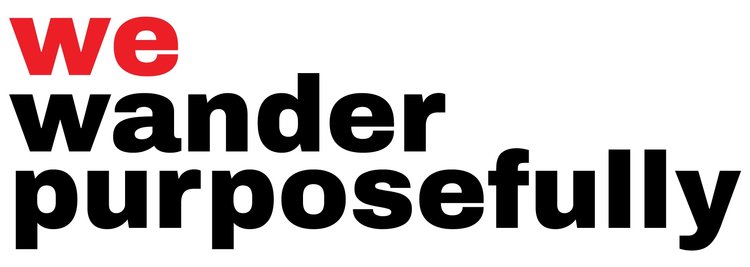Religious Texts
Religious texts (a la The Bible or The Holy Quran or The Book of Mormon):
These books form the foundation of many people's daily thoughts and actions. They are also books where you can zone out for minutes at a time and not miss the main ideas. No matter how Christian you are, your salvation doesn't depend much on the width and length (in cubits) of the Temple of Jerusalem.
Thus, these books are just about the only thing that you can listen to when you're totally exhausted. They might even provide sorely needed inspiration. I was enlivened while listening to Johnny Cash narrating Revelation ("And Lo, a pale horse!") while I was summiting Mount Baden-Powell during a particularly grueling day on trail.
As of now, there is one review available in this tier: The Book of Joy
Follow We Wander Purposefully on social media to be informed when new blog posts arrive!
★★★★★
The Holy Bible, New Testament — Narrated by Johnny Cash
The Holy Bible, Old Testament — Narrated by David Cochran Heath
The Holy Quran — Narrated by Robert Adams
The Book of Mormon — Narrated by Sean Crisden
★★★★
The Analects of Confucius — Narrated by Arthur Grey
★★★
The Book of Joy — Dalai Lama, Desmond Tutu, and Douglas Abrams
The Shack — William Young
★★
Walden — Henry David Thoreau
★
N/A
REVIEWS
★★★The Book of Joy — Dalai Lama, Desmond Tutu, Douglas Adams, narrated by Dalai Lama, Desmond Tutu, Douglas Adams
REVIEW BY ERIC TRAVIS
This book is an interview format between the head of the Buddhist religion (the 14th Dalai Lama) and the very popular Catholic Archbishop, Desmond Tutu. The interviewer and writer is a man named Douglas Carlton Adams. The interaction and dialogue between the Dalai Lama and Tutu is often marginally funny (like how a dad-joke evokes a weak smirk). The jokes very much rely on subverting our innate expectation of holy men to be overwhelmingly somber. Yet, we often hear these two poke fun at each other’s appearances and ages.
The book espouses a holistic view of life to achieve happiness and avoid suffering. They often recommend meditational practices for their listeners, and the last hour or so is just how-to techniques for meditation. I fundamentally disagree with any emphasis upon meditation, as you are, by definition, spending time only within your own bay (as explained in the Wander Purposefully audiobook). While within your own realm of experience, you are not learning anything new.
I would prefer your time to be spent learning about others’ points of view, rather than mulling over your own point of view to the nadir of boredom. You don’t know what you don’t know and it’s your responsibility to figure out where your blind spots are.
There was an especially shocking moment of candor from the Dalai Lama I thought was the most memorable part of the book: he says something to the effect that society is getting to a point where religion will no longer be necessary. This was eyebrow raising, thought provoking, and brave for a man of his profession. Now that I’ve created my own audiobook, I’m aware how every single sentence is scrutinized and edited multiple times over, unlike how a podcast normally is. This quote was not a mere slip of the tongue, but entirely intentional.
I have the inkling this book would not have been so critically praised (and so well-sold), had it not been for the prestige of its interviewees. I didn't find the book especially enlightening, but I guess the Dalai Lama is literally holier-than-thou, so his sayings carry more weight and sell more books than the average person. His views on suffering ring hollow to me, due to the divine-right acquisition of his lofty status. It reminded me of when Justin Bieber was singing about love and heartbreak as a preteen.
Petty thoughts like these sometimes enter my mind. I realize it is an unfortunately accurate example of disrespect based on irrelevant facts. It isn't the Dalai Lama's fault he was born into an advantageous situation relative to my own situation. Just as it isn't my fault I was born into an advantageous situation relative to many other people. Just because the Dalai Lama likely hasn't experienced traditional suffering (I obviously can’t know this for sure), doesn't mean he shouldn't try to fix the obvious problem of suffering. Doubtless he has at least witnessed suffering, but I just couldn’t help but feel cynical while I was listening to this. Maybe this is more of a reflection on me than it is of this book.
Why this book received a 3 star rating: This is not an entirely purposeless audiobook, as any inter-religion collaboration is admirable. There are wisdom-laden sound bites throughout, especially from the ever cheerful Archbishop. Thus, this book receives three stars.

